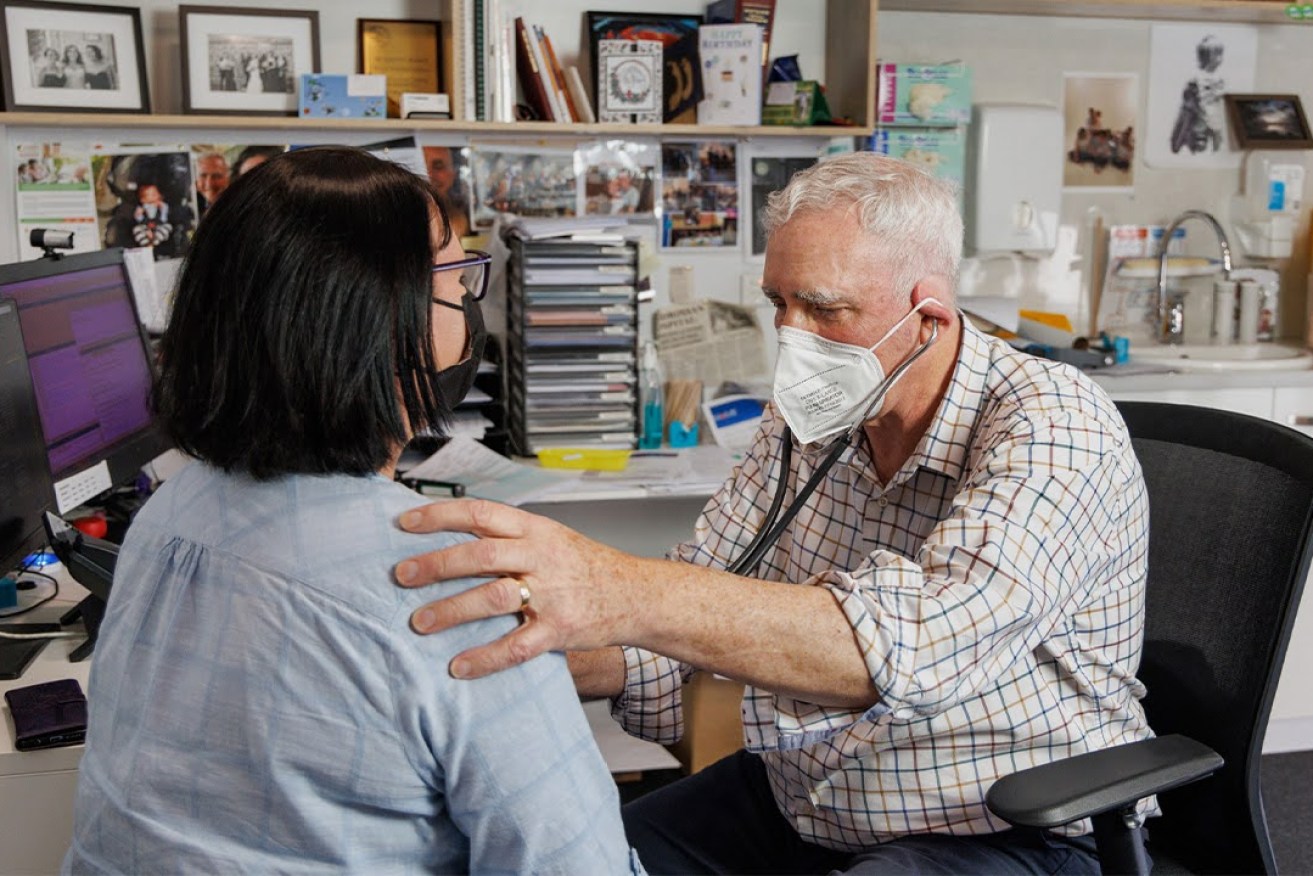Long COVID to impact tens of thousands of South Australians
An estimated 35,000 South Australians can expect to contract Long COVID and more than 600 patients are already seeking specialist support for the chronic illness, SA Health says.

Photo: Tony Lewis/InDaily
Data provided to InDaily shows as of October 2022, SA Health estimated that South Australia could expect up to 35,000 Long COVID cases.
More than 600 patients have been referred to outpatient clinics for further specialty review.
Long COVID – also known as Post COVID-19 Syndrome – can last for more than 12 weeks after a patient tests positive.
The illness can have a debilitating impact on a patient’s ability to perform daily activities such as work, study and physical activity, with symptoms including shortness of breath, struggling to get out of bed, a lingering cough, extreme tiredness and loss of smell and taste.
Anyone who has had COVID, regardless of how mild or severe their symptoms were initially, is susceptible to contracting Long COVID, with chronic symptoms sometimes fluctuating over time.
Doctors have previously told InDaily that up to 40 per cent of COVID-positive patients had reported Long-COVID symptoms, sparking concerns about how the health system would cope.
In a submission to a parliamentary committee, Australian Medical Association SA president Dr Michelle Atchison wrote that COVID continued to “play havoc” with the health system.
She wrote that allied health practitioners had estimated a 10 per cent increase in services above pre-pandemic levels for “many years” due to Long COVID, with the impacts on other specialties “only now beginning to be understood”.
“Patients affected by COVID continue to occupy GP, specialist and allied health appointments that therefore are not available for other patients, who then contribute to ramping and ED presentations,” she wrote.
“Doctors and other health practitioners are overwhelmed and have not rested for three years.
“The large-scale impact and cost of this on existing health and mental health services into the future is unknown; however, additional capacity for medical, nursing, allied health, and Aboriginal health practitioners to support optimal patient recovery will be required.”
The Royal Australian College of General Practitioners has also sounded the alarm about Long COVID cases increasing pressure on the health system.
College president Dr Nicole Higgins said there was a need for greater investment in data collection and research into the illness.
“Currently, Australia doesn’t have an agreed definition of long COVID, which is essential to support GPs in diagnosing patients and managing their ongoing care,” she said.
“Research funding should be directed to general practice, where the bulk of patient care is taking place.
“We need to gather data from primary care, and it needs to be interpreted by GPs.”
A SA Health spokesperson told InDaily that it started planning for Long COVID in early 2022, with a “coordinated approach across government and community health services”.
“We continue to work with primary healthcare providers to ensure they can safely care for patients with the illness,” they said.
“Most patients can be cared for GPs and allied health professionals in the community. A small minority may need tertiary outpatient care via a Long COVID care clinic or an alternative specialist outpatient clinic.
“We have provided education to doctors regarding the community-based management of the illness.
“We encourage South Australians to seek initial treatment for Long COVID via their GP.”
According to SA Health, patients requiring specialist treatment can receive support at the Royal Adelaide Hospital, Flinders Medical Centre and the Women’s and Children’s Hospital, where they will be triaged based on the severity of their concerns.
It recommends that South Australians, particularly those who are vulnerable, consider wearing a mask in indoor crowded public places as well as on public transport where it is not possible to safely distance from others.




